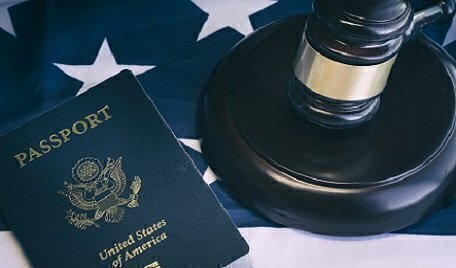A federal judge in Texas has given the Trump Administration a chance to apply its victory last week in the Supreme Court against foreigners’ entry into the U.S. as a new reason to end the DACA program. DACA stands for Delayed Action for Childhood Arrivals.
 The Administration has been trying since last September to abolish DACA but has been thwarted by lower courts’ temporary orders keeping the program intact. DACA has already spared some 800,000 younger undocumented immigrants from deportation.
The Administration has been trying since last September to abolish DACA but has been thwarted by lower courts’ temporary orders keeping the program intact. DACA has already spared some 800,000 younger undocumented immigrants from deportation.
Last Saturday, U.S. District Judge Andrew S. Hanen of Brownsville, Texas, told the federal government and others involved in a case on the program’s legality to submit new legal arguments on “what impact, if any” the Supreme Court’s June 26 decision in Trump v. Hawaii might have on the case.
The judge is handling a case filed by eight states and two other states’ governors contending that DACA has been invalid since the Obama Administration started it six years ago. The lawsuit was filed in May and asks Judge Hanen to block any renewals of legal permission for DACA recipients to stay in the U.S. If the judge did so, existing permits would run out in two years, and the program would cease.
No public explanation has been made on why Judge Hanen has now brought into the case the new question of presidential authority to create the DACA program. Presidential authority over immigration was at the heart of the Supreme Court’s 5-to-4 decision rejecting a challenge to the President’s order barring entry to the U.S. of any foreign nationals from six Muslim-majority nations.
The Court majority, however, relied primarily upon a 1956 federal immigration law that gave the President wide authority to exclude all aliens from this country, based upon a finding that such an action was necessary to the nation’s interest. The majority also accepted the Trump Administration argument that national security justified the exclusion order because it was not clear that immigrant-vetting procedures in the six nations would identify potential terrorists seeking to travel to the U.S.
While the lawsuit in Brownsville by Texas and its allies has not relied upon the same immigration law and has not made a national security argument against DACA, the judge’s order Saturday gives the challengers to DACA at least a chance to fashion new arguments to take advantage of the ruling in Trump v. Hawaii.
In fact, Trump Administration lawyers have already made brief new legal arguments in an attempt to take advantage of the Hawaii decision in the controversy over DACA, citing it as a reason for a federal appeals court in California to throw out one of the existing court orders that keep DACA in effect. The one point that filing drew from the Supreme Court ruling is that the federal courts have only limited authority to review federal immigration policy actions. Ending DACA should similarly be subject only to “extremely limited review (if it is reviewable at all),” that document said. The head of the Department of Homeland Security has also been making a similar argument, in a federal court case over DACA in Washington, D.C.
The lawsuit in the Texas trial court has claimed up to now that President Obama did not have the authority, under federal immigration laws or under his constitutional powers, to create the DACA program. It also has claimed that the program was put in place without meeting procedural requirements.
When the Trump Administration decided last September to nullify the DACA program, the only official reason given for it was that it would not pass a legal test in court, just as earlier deportation-deferral programs set up by the Obama Administration had failed in Judge Hanen’s court more than three years ago. Those other programs had never gone into effect.
Legendary journalist Lyle Denniston has written for us as a contributor since June 2011 and has covered the Supreme Court since 1958. His work also appears on lyldenlawnews.com.







